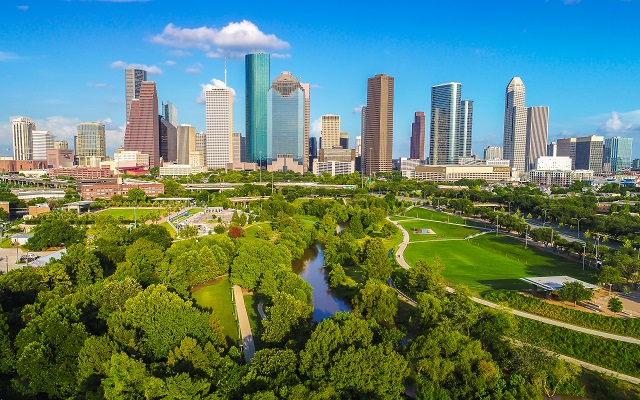Bid Committee Prez: World Cup Would be Boon to Houston
Published Apr 10, 2019 by Maggie Martin
The FIFA World Cup is coming to the United States, Canada and Mexico in 2026. Players will compete in 80 matches across 16 cities, including 10 in the U.S., and Chris Canetti is determined that Houston will be one of them.
The former president of the Houston Dynamo and Dash is now the president of the Houston World Cup Bid Committee. It was formed as part of an effort to bring the 2026 World Cup to Houston and is run by the Harris County – Houston Sports Authority.
Canetti laid out the committee’s efforts at the Greater Houston Partnership’s Arts, Culture, Tourism and Sports Council meeting on April 9. Houston is among 17 finalists vying for those 10 U.S. spots, and Canetti said the committee is aggressively pursuing the bid for Houston.
“We’re not taking anything for granted, or leaving any stone unturned,” said Canetti.
Bringing the world’s most popular sporting event to Houston would be a significant image booster, Canetti said, comparing the World Cup to another popular sporting event—the Super Bowl. He cited preliminary figures from Nielsen, which found the biggest football game in the U.S. drew an average TV audience of just over 98 million people in 2019. By contrast, said Canetti, the broadcast of the World Cup in Russia last year drew a record 3.5 billion people.
Canetti also laid out how bringing the World Cup to Houston would boost our region’s economy. The 2017 Super Bowl, said Canetti, drew 150,000 visitors to Houston over a week of events and brought in $347 million to Greater Houston’s economy. Canetti said by comparison, there would be several World Cup matches here with over 30 days of events, translating to a much larger impact for the region.
Canetti said Houston has a strong case to host the 2026 World Cup. He cited the city's proven track record with the Super Bowl, the excellent hotels, the two international airports and numerous cultural attractions as just some examples of why Houston should host the global sporting event.
“Soccer is indeed the world’s game, and Houston is the most ethnically diverse city in the country. So some might say it’s a perfect match,” Canetti said.
The Houston World Cup Bid Committee is currently refining its application to improve Houston’s chances of winning the bid. A final decision is expected in late-2020 or early-2021.
Learn more about the Partnership’s Arts, Culture, Tourism and Sports Council here.
 The Houston Report
The Houston Report


















